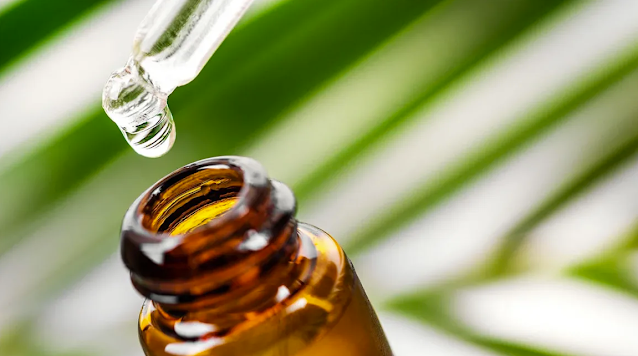Aromatherapy - An Olfactory Journey to Wellbeing and Tranquility through Your Skin
Aromatherapy - An Olfactory Journey to Wellbeing and Tranquility through Your Skin
Scents, these invisible agents of allure, lather our lives with a profound influence that transcends the mere sensory. A mere whiff can become a time machine, evoking vivid recollections, eliciting profound sensations, and weaving an olfactory tapestry of our existence. Observe, for instance, the invigorating aura of a eucalyptus-steeped sauna or how floral fragrances coax our minds towards a state of serenity and peaceful ease. This compelling human instinct, resonating at a primordial level, is the cornerstone of the therapeutic practice known as aromatherapy. A rich blend of science and art, aromatherapy employs essential oils in a savant melange of prevention and treatment modalities for a gamut of physical, psychological, and energetic quandaries.
Authentic aromatherapy luxuriates in the therapeutic deployment of pure, unadulterated essential oils. These potent botanic essences find their application in an array of modalities, encompassing baths, massages, compresses, and diffusions, and also internal use. Prior to their use, these essential oils are often mingled with neutral carriers, such as vegetal oils, cereal water, or cereal alcohol, to preserve their chemical integrity and therapeutic efficacy in our bodies.
As delineated by "The Illustrated Encyclopedia of Essential Oils," a master guide in the field, massage stands as the preferred choice amongst aroma therapists. Selected for its assured skin absorption and subsequent entry into the bloodstream, this method fuses the essence with foundational oils such as jojoba, avocado, peanut, soy, peach kernel, and more. Another enlightening tome, "Aromatherapy: Healing for the Body & Soul," underscores the profound impact of the simple act of oil application upon the skin. The author, Kathi Keville, extols the virtues of human touch, warming the body, dispelling stress, fostering relaxation, and instigating deep, restorative breathing.
Harvesting the Benefits
While aromatherapy has earned acclaim for fostering wellbeing and mitigating stress, these desirable effects represent merely the tip of its therapeutic iceberg. The true transcendence of this therapy lies in its ability to sway body chemistry, influence emotions and attitudes, and enhance the body’s overall functionality.
Venture into the enlightening pages of "Aroma Therapy: Healing for the Body & Soul," and you shall discover a panoply of therapeutic exploits attributed to aromatherapy:
- Alleviation of pain, inflammation, and spasms
- Ignition of the immune system, hormone production, and blood circulation
- Management of skin infections
- Relief for respiratory and digestive quandaries
- Remedy for emotional stumbling blocks, encompassing depression and panic.
Proceed with Caution
As with any potent elixir, an imperative for caution does exist. Certain essential oils, such as camphor, thuja, and red thyme, can prove detrimental due to their high toxicity levels, potentially leading to severe skin irritation. Essential oils should not be applied directly upon the skin, but rather diluted in a carrier such as oil or cream.
Furthermore, it is prudent to perform a patch test on the skin prior to using essential oil to safeguard against potential allergenic reactions. Certain oils, like lemon and verbena, may cause spots when exposed to sunlight.
"The Illustrated Encyclopedia of Essential Oils," with its focus on informed application, warns against the use of certain essential oils on pregnant individuals and those with conditions including diabetes, high blood pressure, and epilepsy. It advises that patients should inform their therapist of their condition and cautions against using essential oils to treat severe medical or psychological problems at home.
The Ingenious Alchemy of Oils
By no means monolithic, essential oils possess a diverse range of properties. Let us explore a few prime examples:
- Calming: Chamomile, lavender, geranium
- Uplifting: Ylang ylang, clary sage, rose, neroli, lemon, fennel
- Energizing: Rosemary, white thyme, grapefruit, cinnamon
- Cleansing: Rosemary, tea tree, lavender, frankincense
- Decongesting: Eucalyptus, pine, tea tree, peppermint
A Profession of Passion
Though aromatherapy's embrace spans the globe, it is regarded as a complement to conventional medicine in most countries. Interestingly, in France, aromatherapy finds its place as part of the formal medical curriculum. Embedded in human history, the use of medicinal and aromatic plants permeates past practices of purifying and scenting spaces, fending off malevolent spirits, treating a variety of physical ailments, and even featuring in ancient Egyptian mummification and Roman baths.
In the United States, there is no licensure or law governing aromatherapy. According to the National Association for Holistic Aromatherapy (NAHA), a completion of a 200-hour course is necessary to become an aroma therapist. Many professionals, including massage therapists, acupuncturists, doctors, and nurses, interweave this training with their work, augmenting their licensed practice with a touch of the aromatic. Allow yourself the luxury of experiencing the exquisite world of aromatherapy, where scents navigate the voyage to wellness.

Post a Comment for "Aromatherapy - An Olfactory Journey to Wellbeing and Tranquility through Your Skin"
Post a Comment